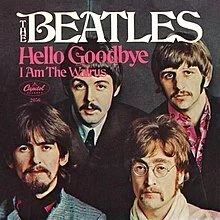This is a phrase that was very popular in the early 1800s when charitable people gave comfort to the poor, the sick, the dying but, while the expression is still used in that context, of late it has been achieving cliché status in the mouths of politicians who are giving comfort to various interest groups.
Read MoreA correspondent noted that the word he hated was onboarding for the process of taking on a new employee. This was once called orientation which was an accurate description of the process by which a new person is given help and advice and told where the tea and coffee is in the kitchen. The newbie is helped to get their bearings.
Read MoreMy ranga friend was saying that she was forever grateful to the person who taught her to remember that you had fewer peas and less potato. Fewer peas because these were a number of countable items on your plate, but less potato (mashed) because this was just one undifferentiated blob on your plate.
Read MoreAn ABC reporter declared that, for the vote on legalising euthanasia, the Queensland government was conducting ‘a rare conscious vote’. I remember commenting before on the decline in frequency of the word conscience from a high in the early 1800s to a low in the 1980s.
Read MoreA friend asked ‘How exactly does one crab money?’ He had noticed an item in the morning paper which referred to ‘money crabbing lawyers and solicitors’. You might think it is just a typo but there more examples of money crabbing on the internet than can be explained away as typos.
Read MoreIf you are not a native speaker of a language you can make some serious mistakes as you try to guess the meanings of words, particularly if you do not have sufficient context or the advice of someone who is a native speaker.
Read MoreAugust was the month when NSW abandoned COVID-zero and aimed at ‘living with COVID’. Sometimes this was more specifically living with Delta, partly because the politicians wanted to remind us that Delta was different and required a different response from the response to previous variants of COVID.
ZG: 9
No one knows yet what this will mean in practice but it is obviously the next twist in the tale of COVID-19.
Read MoreThe newsreader this morning hesitated over the item that talked about Victoria’s decision to instate restrictions. Obviously she was not familiar with the word instate, and neither were we. I checked to see if it was perhaps a simple error but there are a number of instances.
Read MoreThis is another problem sent to me from the real world by a troubled correspondent. It turns out to be an interesting story but I will tell you now, because I know you are wondering. It is ‘you say hello, I say goodbye’. The Beatles are in the hello camp.
Read MoreThe Ampol service stations have chosen foodary as their corporate name for their food outlets. This seems surprising and, to be frank, uncomfortable and unconvincing. This word is not an Ampol invention. Others have attempted it before them and have generally chosen the -ery suffix.
Read MoreI see what you did there! is a new way to pay a mild compliment to your interlocutor’s witticism, especially a spur of the moment witticism or one-liner. Or, posed as a question (Did you see what I did?), it is a way of highlighting that fact that you have just made a witticism — so a compliment-seeking behaviour.
Read MoreA friend, who was also once a Macquarie Dictionary editor, wrote to me with the observation that one new feature of English that has really taken off recently is to use super to mean ‘very’ as in: That’s a super interesting question!
Read MoreOne of the earliest English translations of the Bible was the King James Version which influenced English literature as well as being central to the religious belief of the day. This was a shared text, so meaningful references could be made to it in the same way that we refer to popular culture today.
Read MoreI must admit that I have not written about unique because I consider it to be a lost cause. I, too, was told when young that unique, because it means ‘one of a kind’, cannot take a comparative and superlative.
Read MoreThis expression originated in American Football, a game in which the field of play is measured in yards. The team attempting to reach the other team’s end zone does so by gaining yards of forward movement. They must gain 10 yards in four forward plays to be able to continue.
Read MoreFor some reason the expression a casual link seems to have more appeal that a causal link. I wouldn’t have thought that causal was a difficult word but newsreaders baulk at it. Some of the results are amusing.
Read MoreThis phrase, now a cliché of the pandemic , derives from C17th legal expression ex abundanti cautela, which covered a situation where a lender wanted more collateral for the loan than was, strictly speaking, required. The extra demand was made out of an abundance of caution to cover the loan.
Read MoreA spelling change can make its way haphazardly through our English. Just because we now spell the weight tonnerather than ton, we don’t necessarily want to change the spelling of the word in an idiomatic expressions like a ton of stress.
Read MoreOne of the most surprising Google Ngrams I have seen is for the word balatron. It leaps up in the 1820s, then flatlines by the 1830s, until suddenly in the 1930s it curves up again, not so high but still noticeably and gains ground post 2000.
Read MoreThe majority of writers are preserving the distinction between singular and plural (there is followed by a singular noun, there are followed by a plural noun). However, a small but significant group seem to feel that there is and there was are set phrases which can be followed by a singular or plural noun.
Read More


















